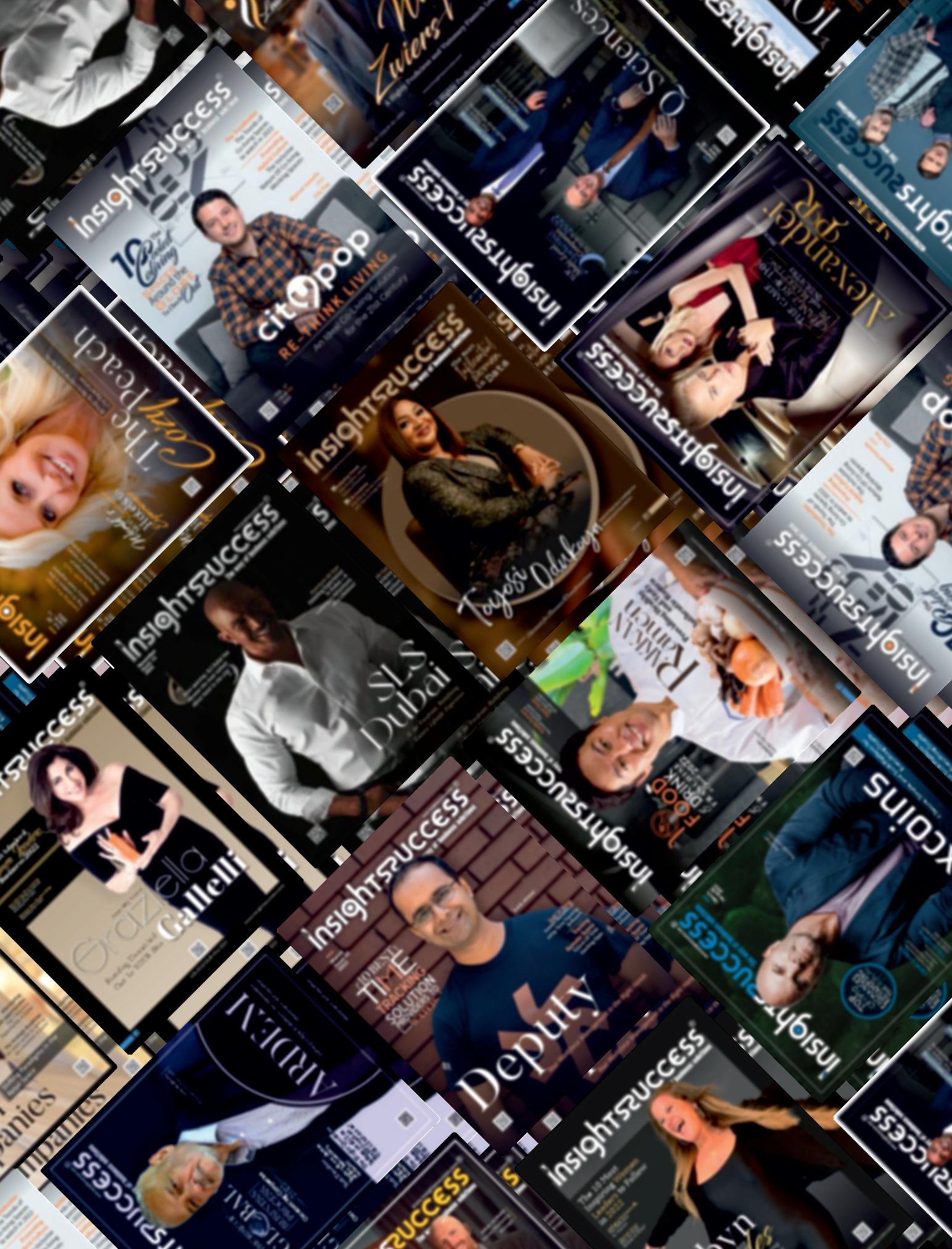

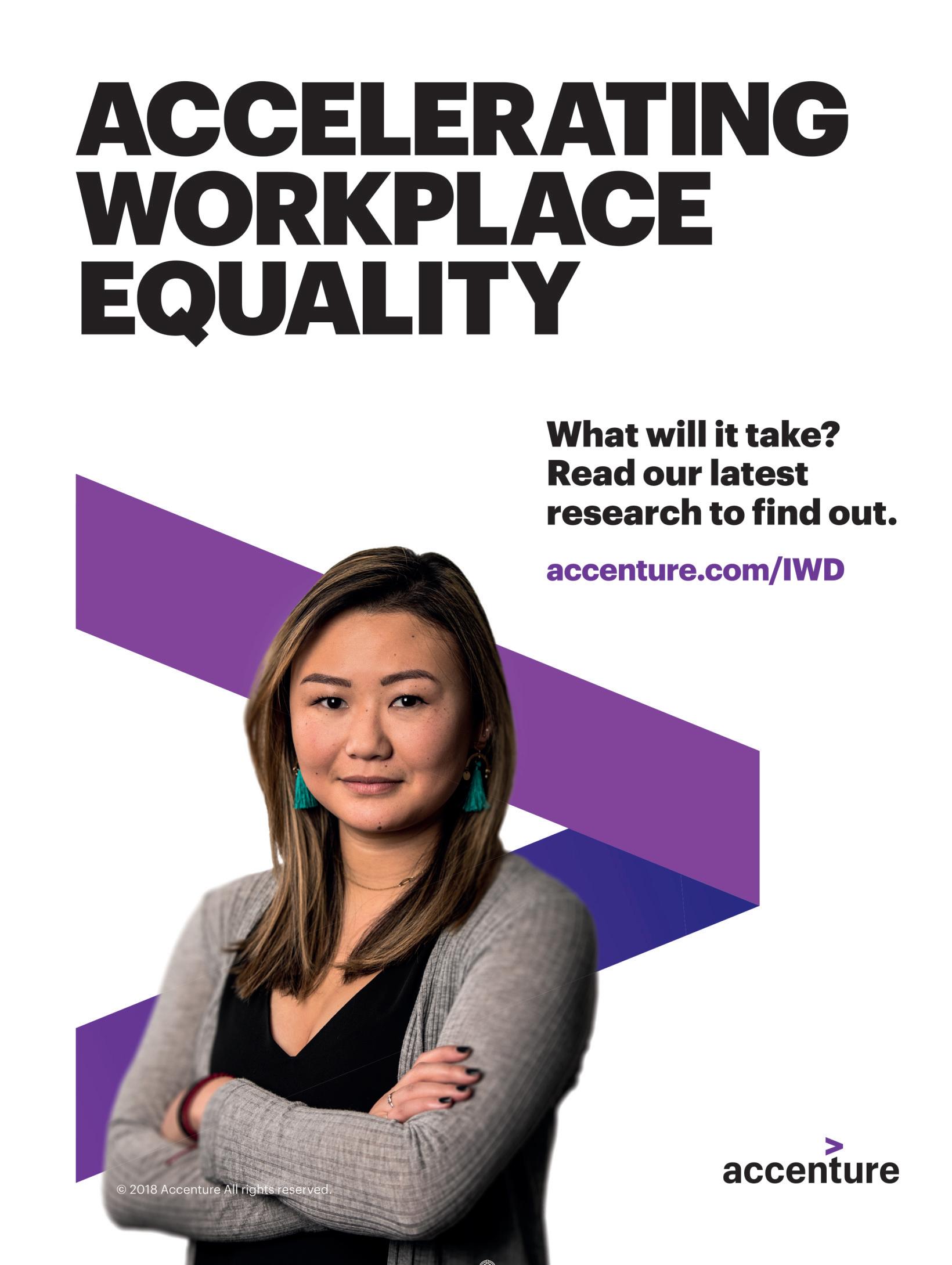








Aswestepinto2025,theneedforinspirationrootedin
authenticity,resilience,andpurposehasneverbeen more profound This Insights Success special edition, Inspirational Icons to Look For in 2025,isatribute to individuals who exemplify the power of the human spirit and serve as beacons of motivation in a rapidly evolving world.
At the forefront of this narrative stands Rachel Choong, a name synonymous with excellence, perseverance, and an unwavering commitment to personal and professional growth.As a trailblazer in para-badminton and a multi-time world champion, Rachel has shattered not just sporting records but societal expectations. Her journey is not merely one of medals and accolades, but of overcoming odds with dignity and grit, becoming a symbol of empowerment for many
This edition aims to celebrate such icons who redefine the meaningofsuccess—notbytitlesalone,butthroughimpact, influence,andtheabilitytoupliftothers.Eachstoryfeatured within these pages is a reminder that greatness is often born fromadversity,andthatrealinspirationisfoundinthosewho rise,evolve,andleadwithheart.
Weinviteourreaderstoexplorethesenarratives,toreflecton their own journeys, and to find the spark that moves them forward.Maythestoriesyoudiscoverinthiseditionserveasa compassforcourage,change,andconviction.
HappyReading!


18
Building Organizational Resilience Through Strategic Transformation
Scaling Quantum Leadership Principles Across Global Teams

Art
Business
Business
Digital
Co-designer
Marketing





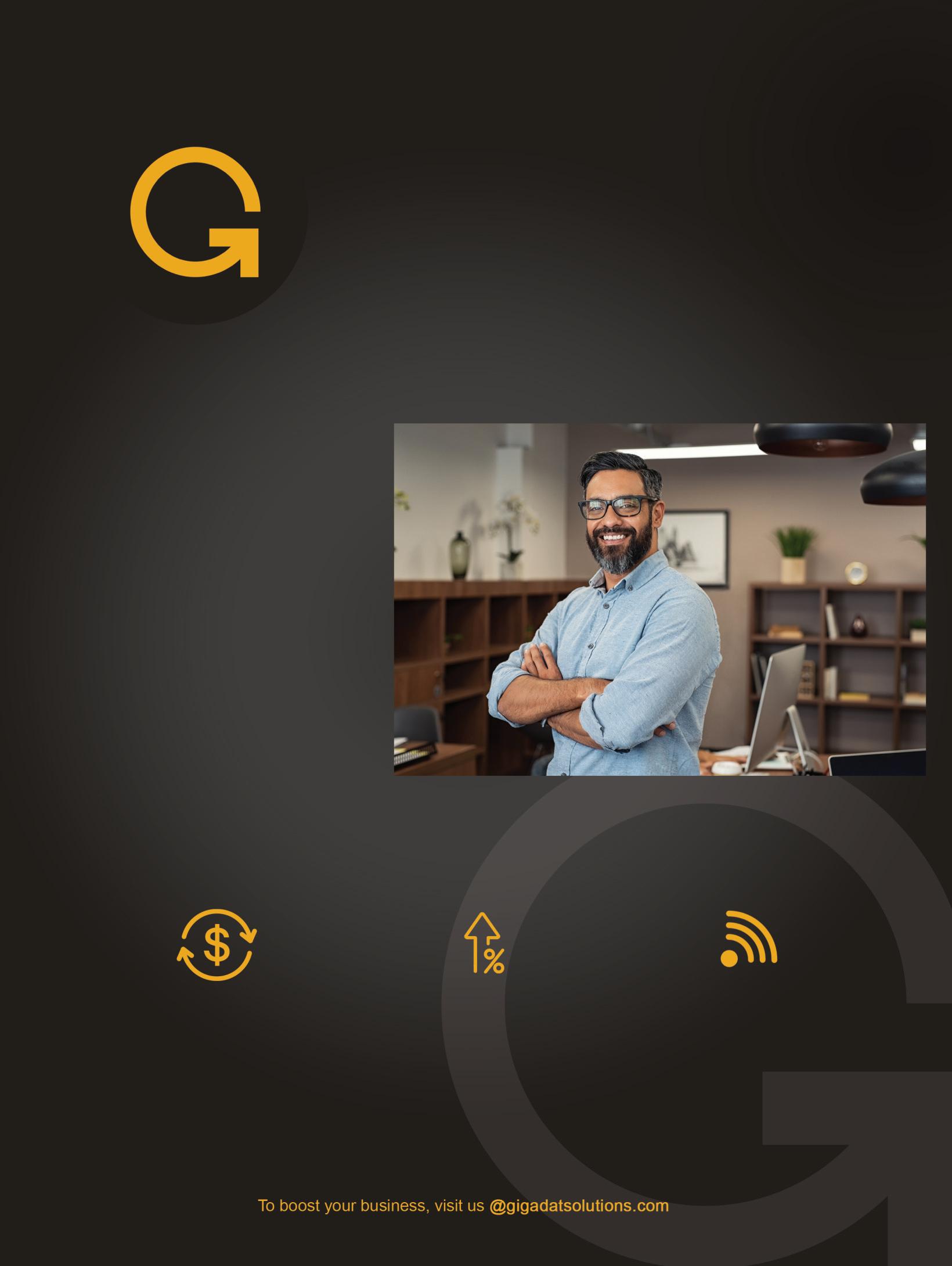











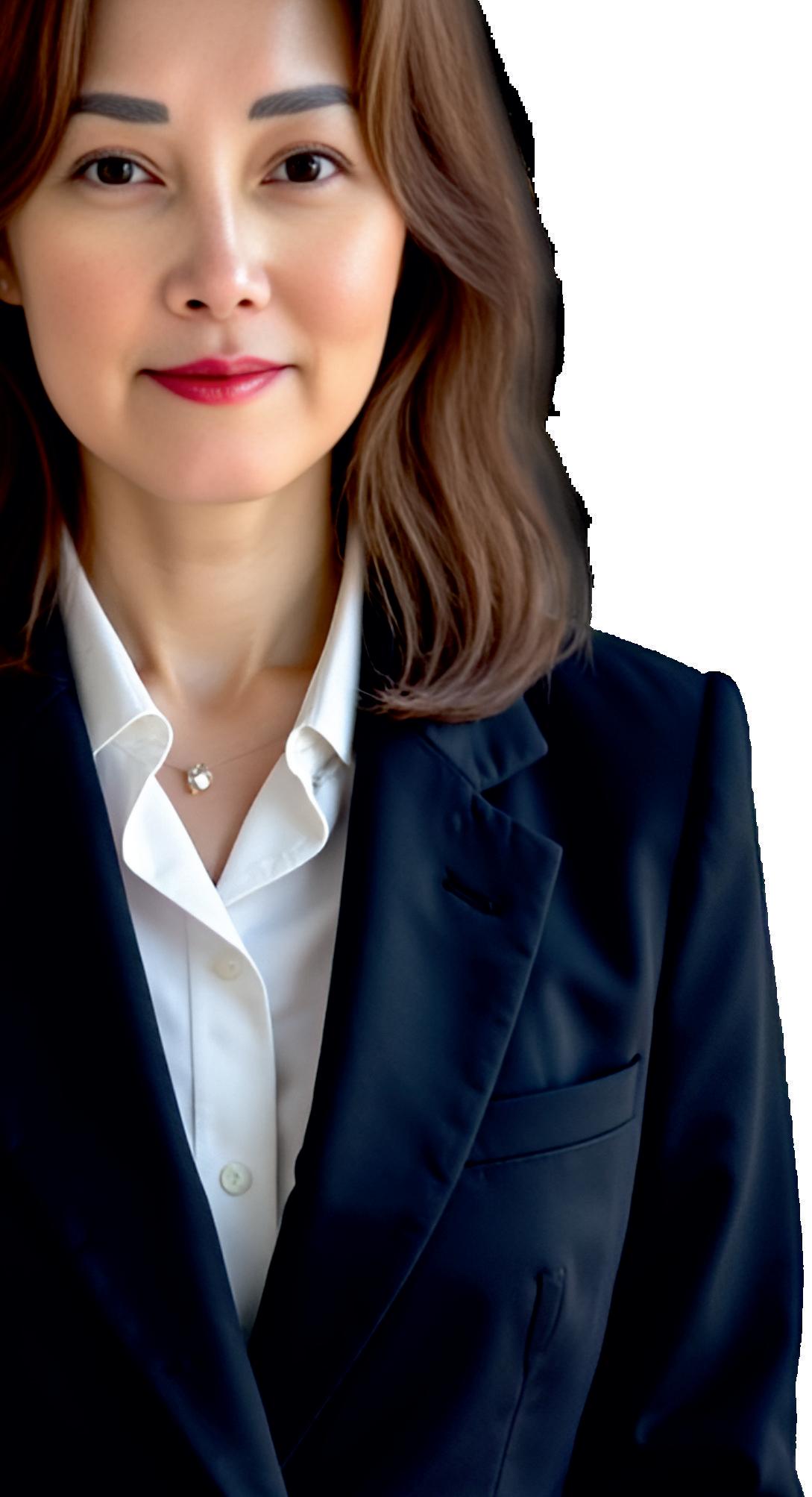
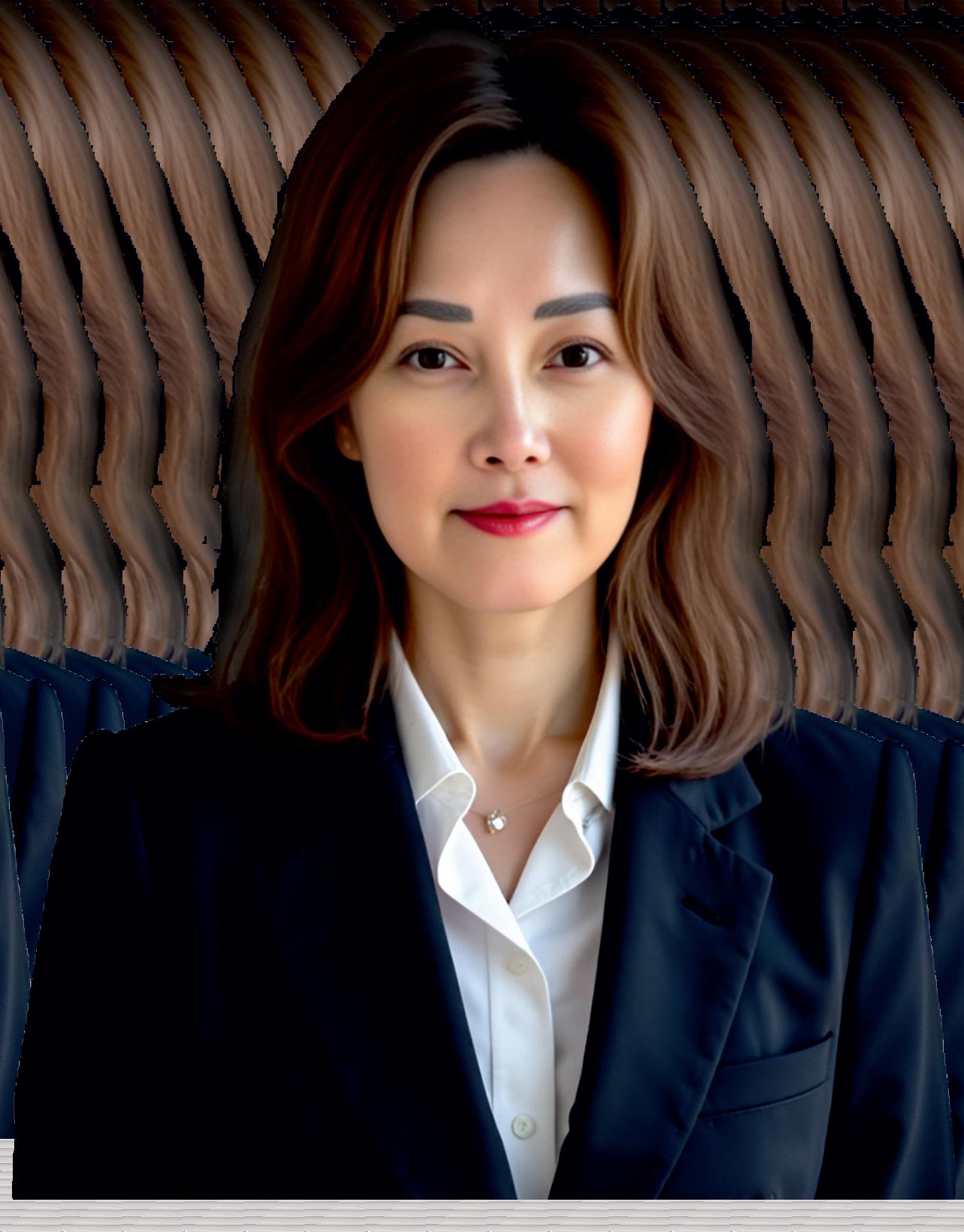



In a world where complexity frequently impedes advancement, Rachel Choong is offering courage, quietconviction,andclarity Choong,whoisregarded asoneofAustralia'smostreliable"executivewhisperers," didn'ttaketheconventionalroutetoleadership;instead,she forgedherownwithtenacityandanextraordinaryknackfor succeedingwhereothersfailed.Shequicklyrosefromher early days in IT and consulting to oversee some of Australia's most important and intricate business initiatives, completing multimillion-dollar projects on schedule and within budget for significant organizations includingNBN,Telstra,andNABCo.
Beyondprojectmetrics,however,iswhereherrealstrength rests.Sheisgaininghernamebysucceedinginhigh-stress situations.Whatdistinguishesherandultimatelyledtoher development as a leadership mentor is her capacity to maintain composure, strategic thinking, and a strong people-focused approach in the face of adversity She is gaining unique insights from crisis-aware leaders over decades,unravellingtheprocessofdecision-makinginthe faceofuncertainty
She is now converting those realizations into knowledge thatisunderstandableforaspiringleaders.Hermultifaceted leadershipphilosophy,whichshereferstoasthe"quantum approach,"iswhereflexibility,emotionalintelligence,and courage converge In addition to teaching leadership, Rachel Choong is exemplifying it with deliberate action, unrelentingvaluecreation,andastrongdesiretoseeothers succeed.Hernarrativeisaboutmorethanjustachievement; it's about developing fresh, sincere, and radically revolutionaryleadershipparadigms.
TheAccidentalLeadershipWhisperer
Choong's journey into what she calls "executive whispering" began accidentally After graduating with an IT degree, she landed in consulting by chance, quickly discoveringshehadararetalentforseeingsolutionswhere otherssawonlyproblems.Butmoreintriguingly,shefound herself naturally gravitating toward the most impossible projectstheoneseveryoneelsehadabandoned.
"Everyone thought I was crazy for taking on the projects others wouldn't touch. Yet throughout my career at major Australian corporations including NBN, Telstra, Coles, and NAB Co, I consistently delivered multi-million-dollar programs ahead of schedule and under budget.” she admits. AtNAB,shecompletedamajorsecurityprojectin threemonthswhenitwasprojectedtotakeayear
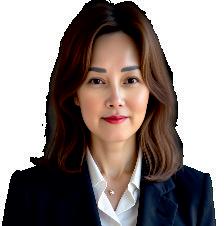
“My appetite for business is like quantum computing I don't think in simple black and white, and I believe that's exactly the mindset leaders need to thrive in our complex world,”
AtNBNCo,sheimplementedAccessManagementsolutions protectingAustralia'sentirebroadbandnetwork.
But the real story wasn't just about technical achievements. Working on these high-stakes projects gave her something invaluable,anunprecedentedaccesstohowAustralia'smost successfulleadersthinkunderextremepressure.
"I realized I wasn't just trying to solve technical challenges I was genuinely curious about how people made decisions when everything was chaotic and uncertain. What became fascinating was watching leaders during crisis moments. These weren't polished presentations or planned meetings these were raw, authentic moments where you could see how theythought."sheexplains.
The personal cost of becoming Australia's "project rescue specialist" was enormous. Ten-hour days became the norm, often in a stressful environment failure wasn't just disappointingitwasdevastating.
“I had no life outside work. When everyone else walked away, I stayed professional, stayed focused, and got the job done because there was no choice as millions of customers and entire companies depended on these solutions " Choongreflectshonestly
Theseachievementsearnedherrecognitionthat most professionals only dream of the Telstra CEOAward,CIOAwards,andNABaccolades. But the real satisfaction came from something deeper which was protecting millions of customerswhileenablinggenuineinnovation.
Thencamethelightbulbmoment.After25years ofworkingwithexecutivesonthesehigh-stakes projects,sherealizedthosegruelingexperiences had given her something invaluable: insights intohowtrulysuccessfulleadersthinkthatmost peoplenevergettosee.
"Theideahitme:whynotdemocratizethishardwon wisdom? Instead of limiting these insights to boardrooms, I could share them with aspiring leaderseverywhere."shesays.
WhatsetsChoongapartisheruniqueapproach to leadership and business—one she describes using a fascinating analogy to quantum computing.
"My appetite for business is like quantum computing I don't think in simple black and white, and I believe that's exactly the mindset leaders need to thrive in our complex world," she explains Most people see business decisions as either safe or risky, like an on/off switch. But quantum computers can be in multiple states at once, which gives them incrediblepowertosolveproblemsthatseemed impossiblebefore.
Thisphilosophyhasshapedherentireapproach to both her career and her book. Where most leaders see "too risky" or "too safe," Choong looks for the smart middle ground where real innovation happens. It's this collaborative, multidimensionalthinkingthathastransformed everyindustryshe'stouched.
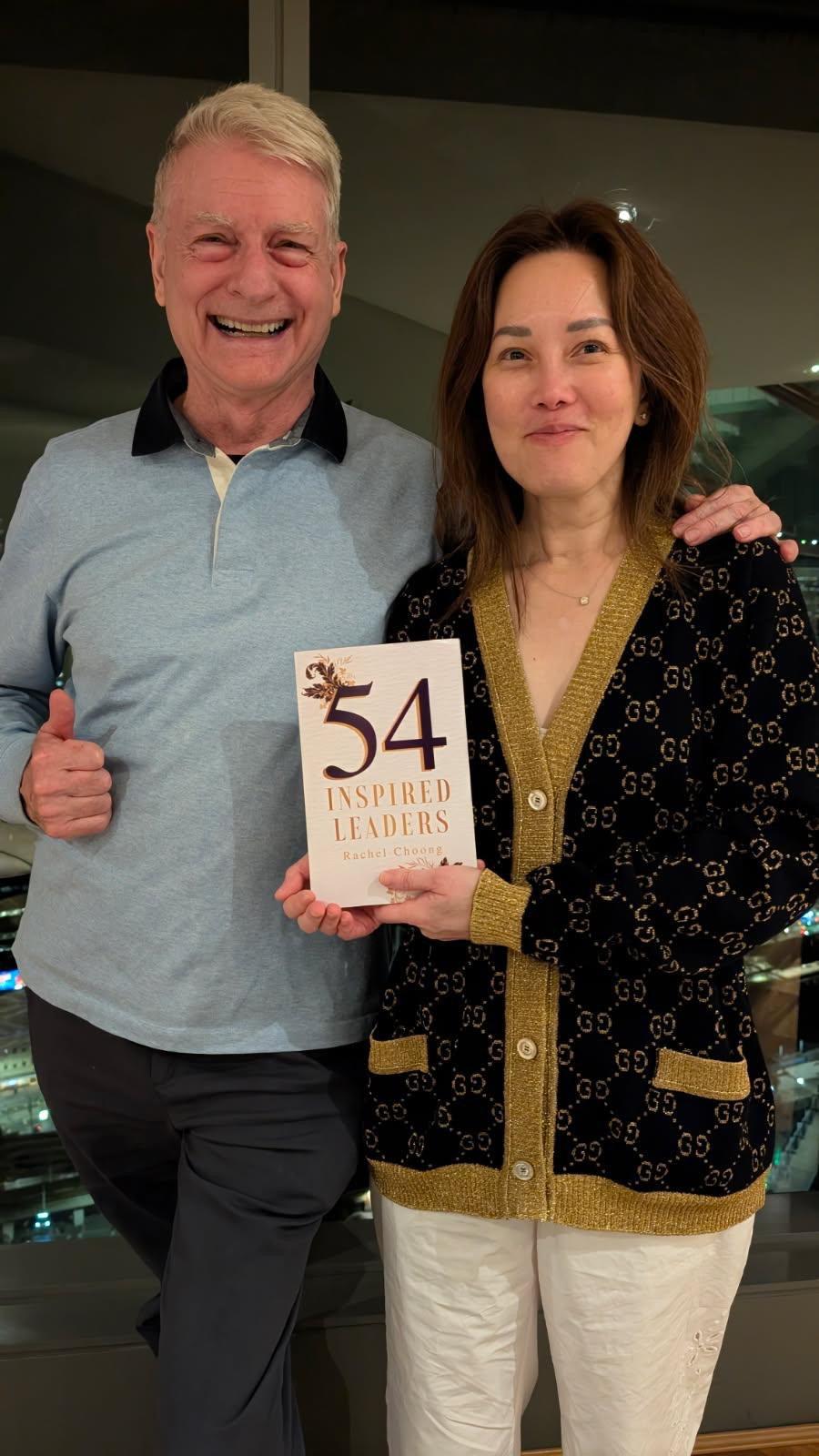
ABookThatBillGates'EndorserEndorses
ThevalidationofChoong'sapproachcamefromanunexpectedsource.The internationalbestsellingauthorGraemeSimsion—whosebook"TheRosie Project"wassobelovedbyBillGatesthattheMicrosoftfoundergavecopies to 50 friends and named it among his top five picks for 2014 spoke at the launchof"54InspiredLeaders"anddeliveredaringingendorsement.
"When Graeme Simsion gave that endorsement during his speechatmybooklaunch,Ihonestlyhadtopinchmyself,"she recalled. Simsion described her book as "Rachel has invited youtotheirhomewheretheyarehostingafabulouspartywith theirmostinterestingandinspiringfriends."
What particularly struck Simsion was Choong's focus on relatablesuccessratherthanbillionairefantasies.Ashenoted, "these people are successful in a way that we might as reasonablemortalsaspiretobe."Healsoobservedthatwhen theseleaderswereaskedwhatinspiresthem,"nobodysaidit wasmoney,theoverwhelminganswerwaspeople."
This insight reinforced something Choong had discovered throughherinterviews:themostfulfilledexecutivesarethose whofocusondevelopingothers.
Behindalltheprofessionalachievementsandaccoladesliesa simple but powerful driving force: helping people find hope wheneverythingfeelsimpossible.
"I wrote '54 Inspired Leaders' because I've been in those dark places where you can't get out of bed and question life's purpose. We all have. During those times, I realized how desperately we need wisdom from people who've faced similar struggles and found their way through." Choong shareswithremarkablevulnerability
Herpassionstemsfromaprofoundsourceofinspiration:Dr. Moya Cole, an ancestor of her late partner, who founded hospitalssopoorpeoplecouldgettreatment.

“When your mind is calm, you can think clearly and make better decisions. But meditation alone isn't enough. The real transformation happens when you cultivate genuine caring for others. Caring gives me deep satisfaction and becomes the fuel that drives everything I do.”
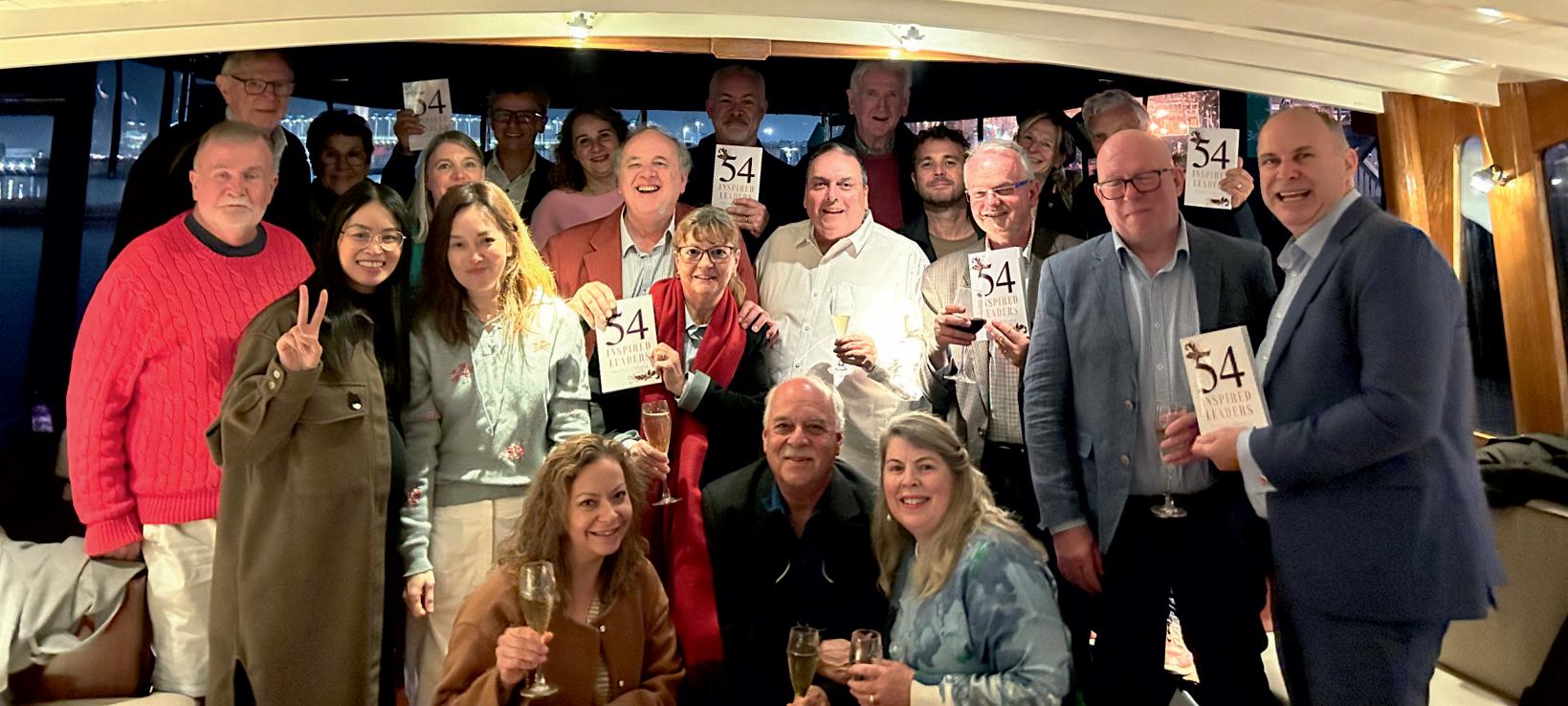
“She taught me that when you can help others, you have an obligation to do so," she explains. This philosophy extends beyond people sometimes it's as simple as buying fruits for injuredwildlifeordonatingtohelpsickpatientsinhospitals.
Everyleadersheinterviewedreinforcedthisprinciple.Denis McGee'swisdomthat"whenyougetknockeddown,getup, and if you're knocked down again, get back up again," and PhilippaTaylor'sreminderthat"themoreyoushinethelight for other people, the more it reflects back on you" became centralthemesinherwork.
The question of work-life balance brings out Choong's refreshing honesty. "I don't think perfect balance exists and I've learned to be okay with that," she admits. Instead, she focuses on staying healthy as the foundation for everything else.
Herapproachisunconventionalbuteffective.Shewritesafter work, meditates regularly, and often can't socialize much simplybecauseshedoesn'tfinishworkontime.Betweenher day job, writing, and self-improvement, her schedule is packed. But everything she does is geared toward making herselfandothersbetter,whichgivesherpurpose.
The non-negotiables that keep her grounded are simple but crucial: walking to work for exercise and thinking time, prioritizing sleep, eating healthy food consistently, and cuddling her dog for pure joy Two CIOs she interviewed sharedwisdomthatbecameherframework:eathealthyfood, sleepwell,exercise,andconnectwithpeoplewiththesefour things,youcantackleanything.
For aspiring leaders, Choong's advice is both practical and profound: "Become a value creator first, and opportunities willfollow
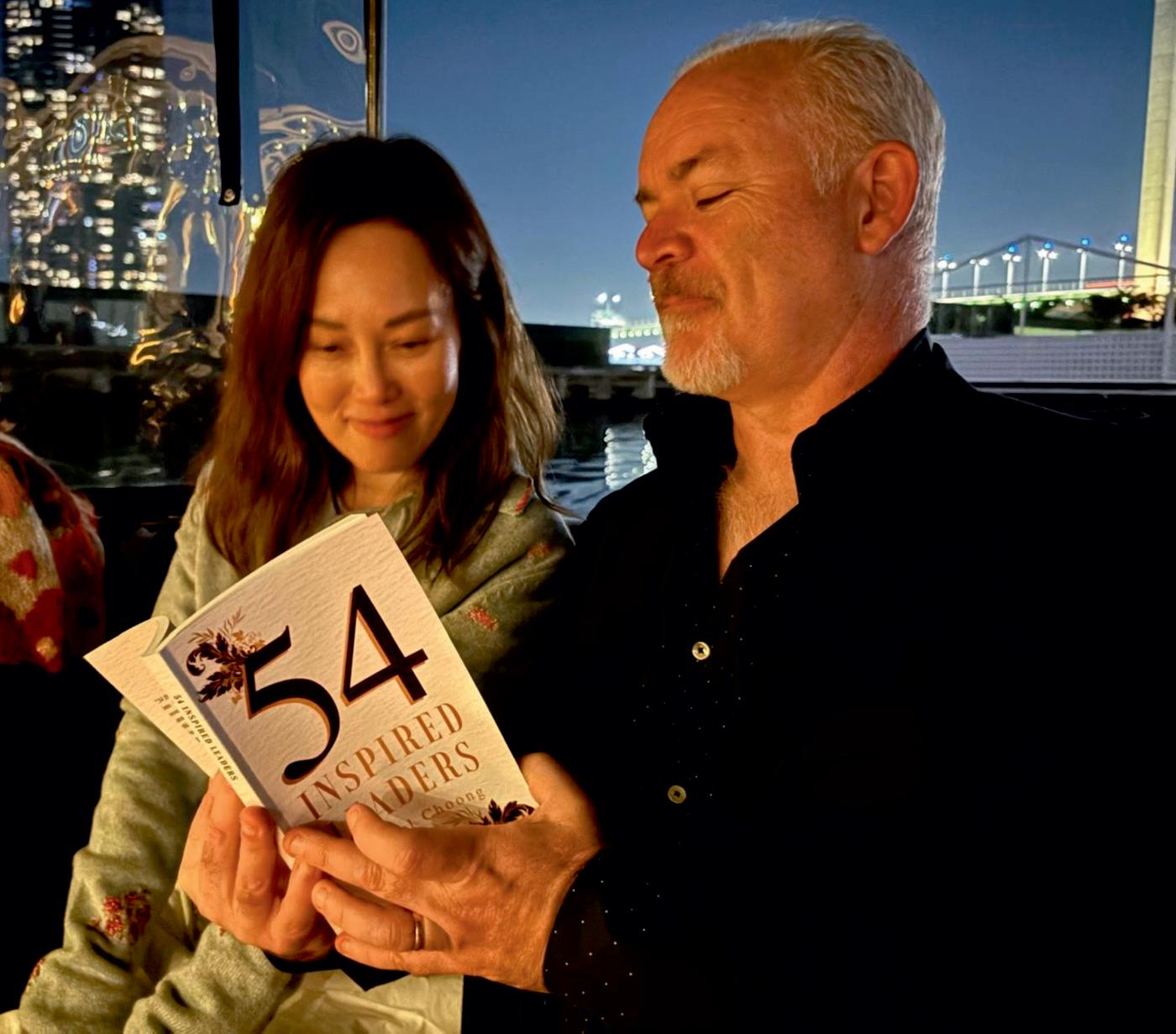

"Everyone thought I was crazy for taking on the projects others wouldn't touch. Yet throughout my career at major Australian corporations including NAB, Telstra, Coles, and NAB Co, I consistently delivered multimillion-dollar programs ahead of schedule and under budget.”
It's not just what you do, but how you do it and how much valueyoubringtoothersthatdeterminesyoursuccess."
Sheemphasizesbuildingself-reliance,takingcontrolofyour reputation early, and not waiting for permission or opportunities. "Life is too short for that. When you think you can't do something, ask yourself what makes you think you can't. Often, it's just fear of failure, but that fear will keep you stuckforever."
Perhaps most importantly, she advocates using your differences as your special weapon. "Whatever makes you unique—your background, perspective, or approach—lean into it. Those differences are what will set you apart in a crowded field."
Choong's mantra for success is deceptively simple yet profoundly effective. Training her mind to be calm through daily meditation. “When your mind is calm, you can think clearlyandmakebetterdecisions.
But meditation alone isn't enough. The real transformation happenswhenyoucultivategenuinecaringforothers.Caring gives me deep satisfaction and becomes the fuel that drives everythingIdo.”shesays.
Thisapproachcreateswhatshecallsapositivecycle:genuine carecreatesapositiveattitude,whichwidensthemind,builds inner strength, self-confidence, and courage to go beyond personalproblems.
According to her Success isn't about conquering the world; it's about expanding your capacity to care and serve. When that becomes your foundation, growth happens naturally because you're always reaching beyond yourself to help othersthrive.
Today, Rachel Choong represents something new in the leadershipspace,someonewhohasnotonlyachievedsuccess but has created pathways for others to access it. From cybersecurityexperttoexecutivewhisperer,she'sshownthat the most powerful career moves aren't always up the ladder, butsidewaysintospaceswhereyoucanamplifyotherswhile amplifyingyourself.
Her final message to those seeking inspiration is characteristically direct: "Be impressive when opportunities come—deliver results, not ego. Stay mentally resilient, keep learning, believe you can do something special Show everyonewhatyou'recapableof."
In a world increasingly complex and uncertain, Rachel Choong's quantum approach to leadership, thinking in multiple dimensions, embracing complexity rather than oversimplifying it, and always asking How can I add value here? offers a blueprint for the kind of leaders our future desperatelyneeds.
After all, as she learned on that sinking boat years ago, true leadership isn't about avoiding the storm it's about staying calm,acting,andensuringeveryonemakesitsafelytoshore.

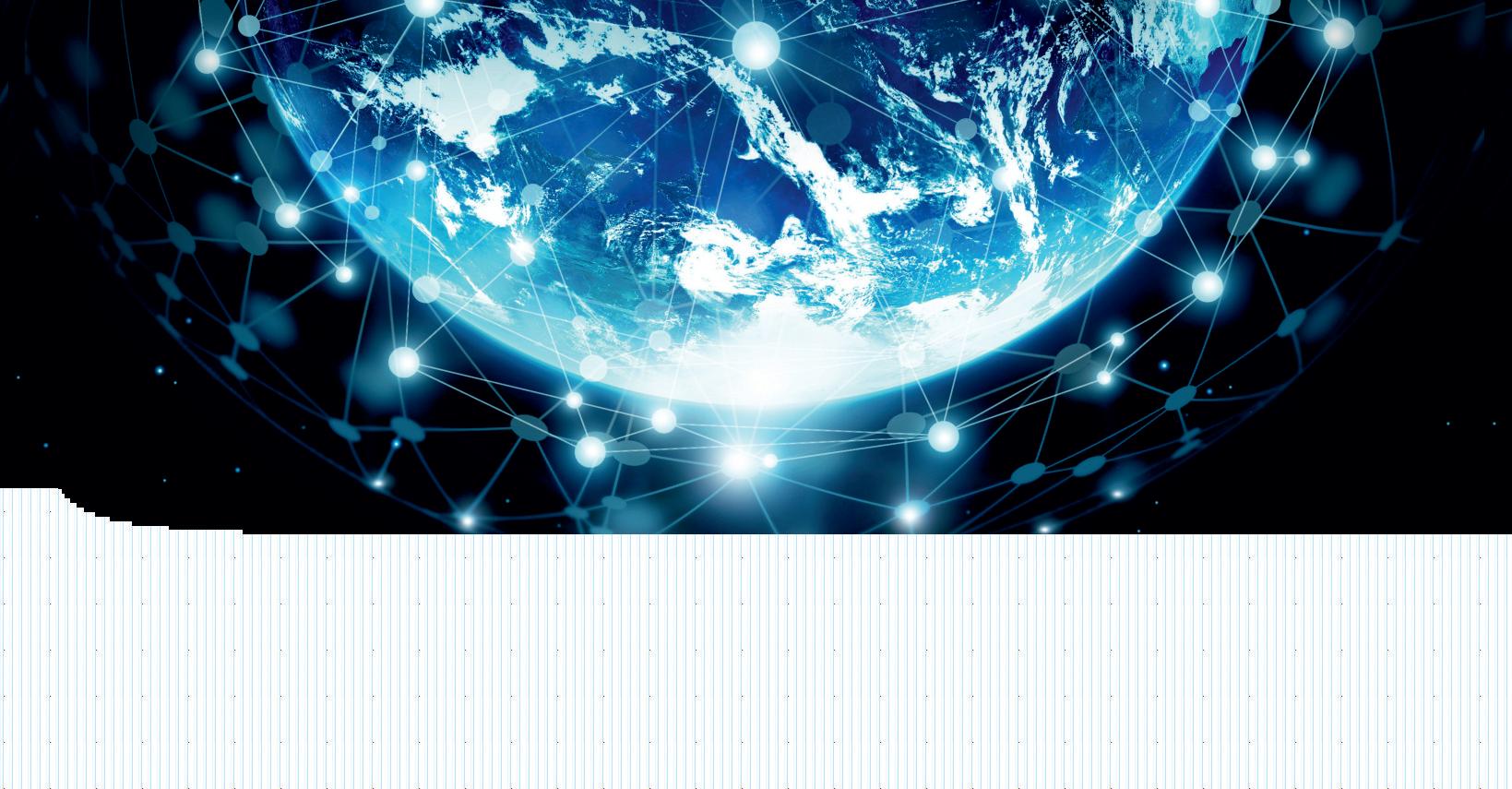








In today's world where the business climate is uncertain and chaotic, adaptability and resilience in the face of adversity have emerged as contributing factors to longtermsuccess.Organizationalresilienceisnotmerelyamatter of crisis survival getting by something. It's more a matter of flourishesamidstcontinuouschange.Underlyingthisability is a power that is both powerful and underappreciated: strategictransformation.
Unlike reactive change management or band-aid solutions, strategic transformation is usually a deliberate, forwardlooking endeavor to re-engineer an organization's core. It addresseseverythingfromthebusinessmodelandleadership architecturetoculture,technology,andcustomerexperience.
By doing strategic transformation, companies not only future proof their companies, but they also create the inner strength requiredtoweatherdisruptionandcomeoutevenstronger
Many organizations now still identify transformation with digital technology or operational changes. While these are essentialcomponents,resilienceliesdeeper Itrequiresmore than process digitization or a new product launch Organizations must change their overall strategic direction, reshaping their purpose, goals, and the channels they use to achievethem.
Strategic transformation compels leaders to move past surface-level fix-it responses. It causes them to consider the whole system, and to ask: "What do we need to be as an organization in five or ten years, and what do we need to changetodaytogetthere?"Whenalonger-termperspectiveis taken,transformationbecomesaresilienceforcemultiplier.
Anorganizationcannotberesilientwithoutaresilientculture. Strategic change will only thrive if it is grounded in cultural flexibility This means making a minds change, dismantling silos,andbuildingamindsetofongoinglearning.Peopleneed to feel empowered—certainly not to merely follow change buttoleadit.
Those who are good at change create cultures in which experimentation is encouraged, and failure is accepted as learning.Insuchcultures,resilienceisnotapersonalproperty but a shared one—it's embedded in day-to-day decisionmakingandaction.Intheabsenceofculturalalignment,even thebest-conceivedinitiativeswillfailtogaintraction.
Strategic change requires courageous leadership. It is not a projectmanagementortoolacquisitionissue;itisamatterof crafting a compelling vision that inspires the whole organization.

Resilient organizations are those that have leaders who clearly communicate, consistently act, and foster trust, particularlyinuncertainty
These innovative leaders are visionaries and, more importantly, facilitators. They setupspaceswhereindividualsfeelsafeto break the rules and propose change. No longer a top-down decree—it is now a partnership, fueled by shared trust and collectiveaccountability
Technology as an Enabler, Not the Driver
Technology has a part to play in transformation, but as an enabler, and always never the overriding intent Strategic transformation is less about selectingtherightdigitaltoolstoexecutea greater business objective, whether enhancing customer experience, optimizing operations, or growingmarkets.
Whatdifferentiatesresilientorganizationsishowtheyembed technology as part of their strategy They don't chase trends—rather,theytakeoninnovationsthatalignwiththeir longer-term ambitions. That way, investment in technology returnsrealpayoffs,notascostlydistractions.
Transformationcannotbesustainedunlessitalsotakespeople along.Employeesarenotstrategyimplementers;theyareits heartbeat. Investment in leadership, training, and talent is paramount to building resilience Organizations must empower their people with skills, tools, and clarity so that theycanchange.
This human-centered strategy fosters trust and minimizes resistance to change. When individuals realize the "why" behind the change and are able to contribute in substantive ways,theyareactiveparticipantsoftheodyssey Ultimately, resilience isn't the product of systems, it's the product of enabledpeopleactingtogetherforasharedgoal.
Take the example of a manufacturing industry in a regional market that had operated for decades with an orthodox configuration.
With rising competition, supply chain issues, and changing customerneeds,itwasevidentthatthekeytosurvivallayin radicalandreflectivechange.Insteadoftakingtheeasyway out, the management opted for transformation at a strategic level.
They started by redefining their mission and customer value proposition. Legacy systems were rewritten, and data analytics were added to predict demand better. But most importantly,employeefeedbackwaswelcomedatalllevels. Training programs were instituted, and cross-functional teamswerechargedwithspearheadinginnovationinitiatives.
Inthespaceofthreeyears,theorganizationnotonlyregained lost ground but ventured into new territories with increased resilience.Theywereagile,confident,andresilientenoughto withstand future shocks—an experience facilitated by their effortstowardsstrategictransformation.
The world is not getting more predictable. If anything, unpredictabilityisthenewnormal.Onlythoseorganizations that evolve only when they have to will be playing catch-up forever.Evenresiliencehastobeanticipatory,andthatstarts with accepting strategic transformation as a process of continuouschange—notaBand-Aid.
Organizations that invest today in long-term vision, cultural flexibility,andhuman-orientedleadershipwillbetomorrow's leadersinthemarket.Theywillnotmerelyrespondtochange butrevolutionizewhatispossiblebecauseofit.
In essence, resilience is the capacity to adapt, absorb, and move forward in the face of adversity It is something every company requires but cannot be accomplished overnight. Thisisaccomplishedbycompaniesthroughstrategicrenewal asthelaunchingpadtoafuturethatisnotmerelysecurebut opportunitiesblooming.
Byresettingstrategy,realigningculture,empoweringpeople, and applying the appropriate technologies, firms devise a system that performs under duress and prospers under uncertainty In a time when change is a certainty, strategic transformation is no longer a choice, it is the best way to resilience.

In the era of rate of change, digital disruption, and deepening globalization, traditional models of leadershiparenolongerabletocope.Whatwaseffective in the industrial or even the early digital era is no longer adequateintoday'scomplicated,globalizedenvironment.
Enter quantum leadership not just a new model, but an imperative shift in consciousness for global leaders faced withcomplexity,diversity,andcontinuouschange.
WhatisQuantumLeadership?
Quantum leadership, a term drawn from quantum physics, recasts leadership as dynamic, whole, and adaptive energy Ratherthanworkingthroughfixedhierarchiesorlonevision, thisapproachimaginesleadershipasafieldofenergy—where presence, intention, and impact are equal if not more significantthanauthorityorcontrol.
In contrast to traditional models, quantum leadership embraces the embracing of uncertainty, the recognition of interconnectedness, and real verification Quantum leadership calls leaders to lead from a place of deep selfawareness,emotionalawareness,andpurpose.
Theemphasisshiftsawayfromcommand-and-controltoward creating environments where individuals feel empowered, collaborative,andmotivatedtoinnovate.
Asbusinessesexpandacrosstheglobe,theseprinciplesserve asagoodguide.Cross-culturalteamleadershipelsewhereon theglobeneedsfunctionalexpertise,butitneedsawareness, adaptability,andtrust—quantumleadershipthinkingissues.
WhyQuantumLeadershipMattersInternationally
Quantumleadershipmustgrowwithglobalteamsisn'tanoble cause—it's a practical one. Global businesses are forced to juggle everyday concerns in aligning work cultures, coping with dispersed dynamics, and adapting to wild market fluctuations.Traditionalleadershipfaltersunderthestrainof thatsortofcomplexity
Quantum leadership, on the other hand, is in a situation of ambiguity.Itpreparesleaderstoseethebiggerpicturewhile producinglocalempowerment.Ithelpsthemleadparadoxes —such as global alignment and local flexibility—without beingparalyzedbycontradiction.
Furthermore,inmulticulturalteams,whereexpectationsand norms could be miles apart, quantum leadership has made inroads.Leaderswithempathic,present,andactivelistening arebetterequippedtoengagemembers,geographybeingthe leastoftheissues.
In the center of quantum leadership, awareness is awakened awareness—the ability to lead from presence, clarity, and intention.Thatis,awayfromreactiveandtowardsthoughtful, reflective leadership. Leaders who are self-aware are more adept at sculpting others through change, conflict, and uncertainty
Authenticity is delivered straight out of the box. In virtual teams,wheretheremaybeminimalface-to-faceinteraction, congruenceofvaluesandactionbuildstrust.Quantumleaders leadfromthefront.Theylivewiththevaluesthattheydesire to see—transparency, integrity, and accountability—so their teammemberscanunitebehindonevision,regardlessoftheir geographicallocationintheworld.
International operations are complex in and of themselves. Political instability, economic risk, cultural heterogeneity, and logistical intricacy all plot against a rapidly changing environment.Mostexecutivestrytomanagethecomplexity by introducing tighter controls or template solutions. But quantum leadership responds differently it embraces complexityasasourceofcreativityandchange.
Ratherthantryingto"solve"complexity,quantumleadersgo with it.They embrace change as the inevitable and valuable component of the system. With such an attitude, they can remaincomposedunderpressureandbuildtrustintheirteams evenwhenthefutureisuncertain.
One of the greatest strengths of quantum leadership is its systems orientation Leaders are no longer solitary individuals—they belong to a larger living system. Each decision, action, or policy affects another, often in ways imperceptibletothehumaneye.
To globalize this thinking is to build teamwork rather than competition among teams. When a Brazilian manager considers their part in an Indian product launch, or when a German design team sits down with Nigerian customer insight, the company is unified. Quantum leadership makes thisonenessandsharedaccountabilitypossible.
To manifest coherence, communication must be open and deliberate Leaders must create room for conversation, encourage reflective thinking, and recognize contributions geographically This establishes not just productivity but belonging.
Crafting quantum leadership into practice for global teams starts with more experiential than technocratic leadership development Development must focus on emotional intelligence,culturalcompetence,andmindfulness.Notbox checkingbutignitingchange.
Organisations must also facilitate reflective practice such as journaling, open feedback sessions, or regular leadership check-ins. These unite everyone and drive development. Establishing a shared language of values and purpose in the firm a language that respects local context makes quantumleadershipatscalemoredurable.
It's also important that market leaders be empowered Quantum leadership doesn't micromanage; it trusts. Empoweringteamstomakedecisionsandremainconnected to the greater narrative builds innovation and ownership throughtimezones.
Technologycanbeabridge,butajudiciousone.Platformsfor real-time co-creation, video storytelling, and knowledgesharing allow people to sense connection, not just coordination.
Quantumleadershipisnotabuzzwordbutacalltoawareness. Itchallengesleaderstoletgooftheoldmodelsandenterintoa newlevelofbeing.Thismodelisnotpowerused,butenergy generated, sparking purpose, and unleashing potential in others.
As we travel deeper into a mysterious future, the firms that invest in making quantum leadership at scale work will be particularly ahead.Their leaders will be grounded but agile, empatheticyetlogical,andcapableofguidinggroupsnotjust toperformance,buttofulfillment.
Lastly,quantumleadershipisn'taboutmanagingaworldwide workforce. It's about motivating a worldwide family—with purpose, empathy, and a sense that through connection, anythingispossible.





For Subscrip�on: www.insightssuccessmagazine.com
www.x.com/insightssuccess

